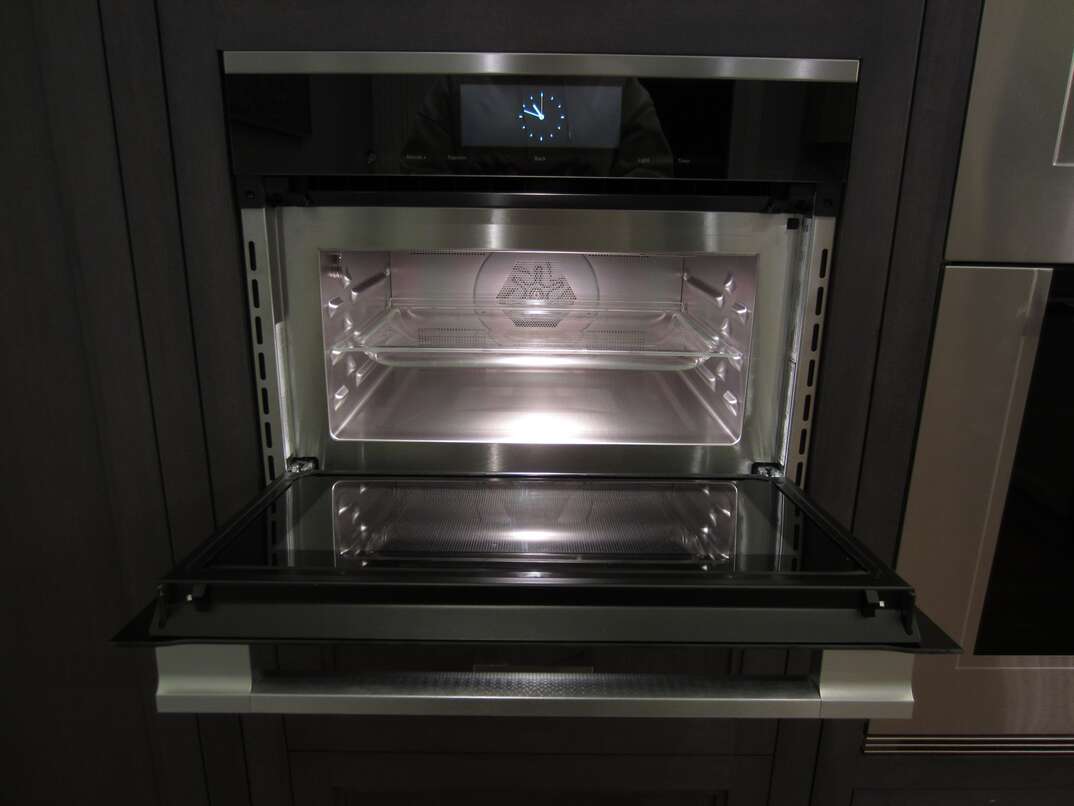- AppliancesElectriciansHVACLandscapingLocksmithPest ControlPlumbingRenovationRoofingT V RepairAll Home Improvement
- Car AccidentClass ActionCorporate LawCriminal DefenseDivorce LawEmployment LawFamily LawFinancial LawLegal AidMedical Injury LawyersMedical MalpracticeReal Estate LawWater Fire RestorationAll Legal
- InvestmentRetirementAll Finance
- Animal InsuranceAutoGeneral InsuranceHealth PolicyHome RentersAll Insurance
- DentalHealth SpecialistsAll Medical
- Animal CareVeterinaryAll Pets
- Auto GlassTowingAll Automotive
How to Save Energy While Using the Oven

Sometimes, only oven cooking will do. Whether you're preparing a batch of crunchy cookies or want perfectly roasted potatoes, your oven can produce flavors and textures unachievable with a more energy-efficient microwave.
However, cooking food in the oven comes at a cost to your wallet and the planet. Direct Energy estimates that running an oven on high costs around 36 cents (CAD 0.49) per hour, which can soon add up if your appliance sees a lot of use. Fortunately, you don't need to sacrifice crispy lasagnas or fluffy, home-baked cakes to save energy.
You can easily conserve energy while using the oven with a little organization and the right know-how. The following energy-saving tips can help make oven cooking more efficient.
1. Choose an Energy-Efficient Oven
Older ovens are typically less efficient than modern models. If you notice a significant increase in your energy bills when using an older appliance, replacing it with an energy-efficient oven could be more cost-effective over time.
2. Maintain Your Oven
Nobody enjoys cleaning their oven, but allowing it to become caked in grime can affect its energy efficiency. That's because all that dirt prevents your oven from distributing heat evenly and makes it work harder to maintain a consistent temperature. Therefore, it's worth adding regular oven cleaning to your home maintenance checklist.
Other oven maintenance issues can also cause energy wastage, such as a loose door or broken fan. Repairing these problems promptly can keep your oven operating as efficiently as possible.
3. Keep the Door Shut
Opening the oven door doesn't just cause cakes to collapse — it can also cause significant heat loss. While you may need to open the door occasionally to monitor the progress of your meal, it's best to keep these checks to a minimum.
Sometimes, homeowners open their ovens too frequently because the glass door panel is too dirty to see through. Therefore, keeping the panel clean could help you save energy. Many models have removable panels to allow for easier cleaning.
4. Multitask
Most modern ovens are large enough to accommodate two or more dishes simultaneously, but overstuffing your oven could stop it from heating evenly. Cooking two dishes at once uses significantly less energy than cooking them separately, allowing you to get more bang for your buck every time you turn the oven on.
Using your oven for multiple dishes can take some planning, and having a meal plan can help you spot multitasking opportunities. For example, if you plan on baking a cake, consider putting it in the oven alongside your evening meal if both dishes require similar cooking temperatures.
More Related Articles:
- How Much Does Appliance Repair Cost?
- Should I Get the Extended Warranty When I’m Buying an Appliance?
- Scratch-and-Dent Appliances: What to Know Before You Buy
- Why Does My Dishwasher Smell?
- My Washing Machine Won’t Drain! Here are 3 Ways to Fix It
5. Turn the Oven Off Early
If you've ever opened your oven a while after turning it off and noticed it's still warm, you'll already know it can contain a lot of residual heat. Instead of wasting this heat, consider turning your oven off a few minutes before your dish finishes cooking to reduce the amount of power you use. You can also use this heat to warm up any dishes that have gone cold instead of heating them in your microwave or on the stove.
6. Choose Energy-Efficient Cookware
Your oven doesn't just use energy to heat your food — it also has to heat the pans or containers. Therefore, choosing cookware made from materials that conduct heat well can help your meals cook faster and at lower temperatures, reducing the energy required per dish. Ceramic, glass and metal cookware are all excellent choices when trying to save energy.
7. Defrost Your Food
Batch cooking and freezing dishes in portions can be a great way to conserve energy, but those frozen meals take longer to cook in the oven than defrosted food. Allowing frozen foods to thaw before putting them in the oven can reduce the energy required to cook them — just remember to defrost them in the fridge or a bowl of cold water to prevent food poisoning.
All CAD conversions are based on the exchange rate on the date of publication.
Elocal Editorial Content is for educational and entertainment purposes only. Editorial Content should not be used as a substitute for advice from a licensed professional in your state reviewing your issue. Systems, equipment, issues and circumstances vary. Follow the manufacturer's safety precautions. The opinions, beliefs and viewpoints expressed by the eLocal Editorial Team and other third-party content providers do not necessarily reflect the opinions, beliefs and viewpoints of eLocal or its affiliate companies. Use of the Blog is subject to the
Website Terms and Conditions.The eLocal Editorial Team operates independently of eLocal USA's marketing and sales decisions.

